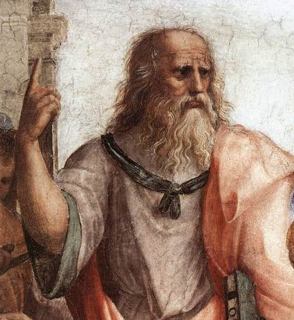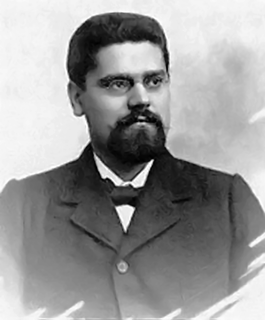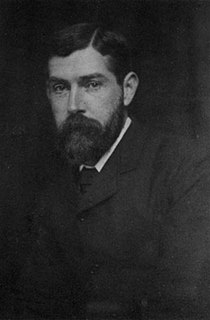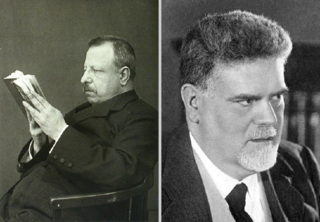 W
WIn philosophy, idealism is a group of metaphysical perspectives that assert that "reality" is indistinguishable and inseparable from human perception and understanding, that, in a sense, reality is a mental construct closely connected to ideas. In contemporary scholarship, traditional idealist views are generally divided into two groups. Subjective idealism takes as its starting point that objects only exist to the extent that they are perceived by someone. Objective idealism posits the existence of an objective consciousness which exists before and, in some sense, independently of human consciousness, thereby bringing about the existence of objects independently of human minds.
 W
WAbsolute idealism is an ontologically monistic philosophy chiefly associated with G. W. F. Hegel and Friedrich Schelling, both of whom were German idealist philosophers in the 19th century. The label has also been attached to others such as Josiah Royce, an American philosopher who was greatly influenced by Hegel's work, and the British idealists. A form of idealism, absolute idealism is Hegel's account of how being is ultimately comprehensible as an all-inclusive whole. Hegel asserted that in order for the thinking subject to be able to know its object at all, there must be in some sense an identity of thought and being. Otherwise, the subject would never have access to the object and we would have no certainty about any of our knowledge of the world. To account for the differences between thought and being, however, as well as the richness and diversity of each, the unity of thought and being cannot be expressed as the abstract identity "A=A". Absolute idealism is the attempt to demonstrate this unity using a new "speculative" philosophical method, which requires new concepts and rules of logic. According to Hegel, the absolute ground of being is essentially a dynamic, historical process of necessity that unfolds by itself in the form of increasingly complex forms of being and of consciousness, ultimately giving rise to all the diversity in the world and in the concepts with which we think and make sense of the world.
 W
WActual idealism was a form of idealism, developed by Giovanni Gentile, that grew into a 'grounded' idealism, contrasting the transcendental idealism of Immanuel Kant, and the absolute idealism of G. W. F. Hegel. To Gentile, who considered himself the "philosopher of fascism," actualism was the sole remedy to philosophically preserving free agency, by making the act of thinking self-creative and, therefore, without any contingency and not in the potency of any other fact.
 W
WA subset of absolute idealism, British idealism was a philosophical movement that was influential in Britain from the mid-nineteenth century to the early twentieth century. The leading figures in the movement were T. H. Green (1836–1882), F. H. Bradley (1846–1924), and Bernard Bosanquet (1848–1923). They were succeeded by the second generation of J. H. Muirhead (1855–1940), J. M. E. McTaggart (1866–1925), H. H. Joachim (1868–1938), A. E. Taylor (1869–1945), and R. G. Collingwood (1889–1943). The last major figure in the tradition was G. R. G. Mure (1893–1979). Doctrines of early British idealism so provoked the young Cambridge philosophers G. E. Moore and Bertrand Russell that they began a new philosophical tradition, analytic philosophy.
 W
WEscapism is mental diversion from unpleasant or boring aspects of daily life, typically through activities involving imagination or entertainment. Escapism may be used to occupy one's self away from persistent feelings of depression or general sadness.
 W
WIdeas are abstract concepts, in common usage and according to philosophy. Also in philosophy, ideas can also be mental representational images of some object. Many philosophers have considered ideas to be a fundamental ontological category of being. The capacity to create and understand the meaning of ideas is considered to be an essential and defining feature of human beings. In a popular sense, an idea arises in a reflexive, spontaneous manner, even without thinking or serious reflection, for example, when we talk about the idea of a person or a place. A new or an original idea can often lead to innovation.
 W
WIdealistic Studies is a triannual peer-reviewed academic journal covering studies of idealistic themes. Both historical and contemporary statements of idealistic argumentation are published, as are also historico-philosophical studies of idealism. The journal was established in 1971 by Robert N. Beck with the assistance of the Clark University philosophy department. Initially focused on American personalism and post-Kantian idealism, the journal's mission has broadened to include other topics, including historically earlier expressions as well as developments of the late 19th to mid-20th century. The journal has become a venue for a number of philosophical movements that share Idealism in their genealogies, including phenomenology, neo-Kantianism, historicism, hermeneutics, life philosophy, existentialism, and pragmatism. It is published by the Philosophy Documentation Center and the editor-in-chief is Jennifer Bates.
 W
WItalian idealism, born from interest in the German one and particularly in Hegelian doctrine, developed in Italy starting from the spiritualism of the nineteenth-century Risorgimento tradition, and culminated in the first half of the twentieth century in its two greatest exponents: Benedetto Croce and Giovanni Gentile.
 W
WMental substance, according to the idea held by dualists and idealists, is a non-physical substance of which minds are composed. This substance is often referred to as consciousness.
 W
WThe study of the mind in Eastern philosophy has parallels to the Western study of the Philosophy of mind as a branch of philosophy that studies the nature of the mind. Dualism and monism are the two central schools of thought on the mind–body problem in the Western tradition, although nuanced views have arisen that do not fit one or the other category neatly. Dualism is found in both Eastern and Western traditions but its entry into Western philosophy was thanks to René Descartes in the 17th century. This article on mind in eastern philosophy deals with this subject from the standpoint of eastern philosophy which is historically strongly separated from the Western tradition and its approach to the Western philosophy of mind.
 W
WPhilosophy of mind is a branch of philosophy that studies the ontology and nature of the mind and its relationship with the body. The mind–body problem is a paradigmatic issue in philosophy of mind, although a number of other issues are addressed, such as the hard problem of consciousness and the nature of particular mental states. Aspects of the mind that are studied include mental events, mental functions, mental properties, consciousness, the ontology of the mind, the nature of thought, and the relationship of the mind to the body.
 W
WQuixotism is impracticality in pursuit of ideals, especially those ideals manifested by rash, lofty and romantic ideas or extravagantly chivalrous action. It also serves to describe an idealism without regard to practicality. An impulsive person or act might be regarded as quixotic.
 W
WReason is the capacity of consciously applying logic by drawing conclusions from new or existing information, with the aim of seeking the truth. It is closely associated with such characteristically human activities as philosophy, science, language, mathematics, and art, and is normally considered to be a distinguishing ability possessed by humans. Reason is sometimes referred to as rationality.
 W
WSubjective idealism, or empirical idealism, is a form of philosophical monism that holds that only minds and mental contents exist. It entails and is generally identified or associated with immaterialism, the doctrine that material things do not exist. Subjective idealism rejects dualism, neutral monism, and materialism; indeed, it is the contrary of eliminative materialism, the doctrine that all or some classes of mental phenomena do not exist, but are sheer illusions.
 W
WTantra denotes the esoteric traditions of Hinduism and Buddhism that developed in India from the middle of the 1st millennium CE onwards. The term tantra, in the Indian traditions, also means any systematic broadly applicable "text, theory, system, method, instrument, technique or practice". A key feature of these traditions is the use of mantras, and thus they are commonly referred to as Mantramārga in Hinduism or Mantrayāna and Guhyamantra in Buddhism.
 W
WIn their most common sense, the terms thought and thinking refer to conscious processes that can happen independently of sensory stimulation. Their most paradigmatic forms are judging, reasoning, concept formation, problem solving, and deliberation. But other mental processes, like considering an idea, memory, or imagination, are also often included. These processes can happen internally independent of the sensory organs, unlike perception. But when understood in the widest sense, any mental event may be understood as a form of thinking, including perception and unconscious mental processes. In a slightly different sense, the term thought refers not to the mental processes themselves but to mental states or systems of ideas brought about by these processes.
 W
WTranscendental idealism is a philosophical system founded by German philosopher Immanuel Kant in the 18th century. Kant's epistemological program is found throughout his Critique of Pure Reason (1781). By transcendental Kant means that his philosophical approach to knowledge transcends mere consideration of sensory evidence and requires an understanding of the mind's innate modes of processing that sensory evidence.